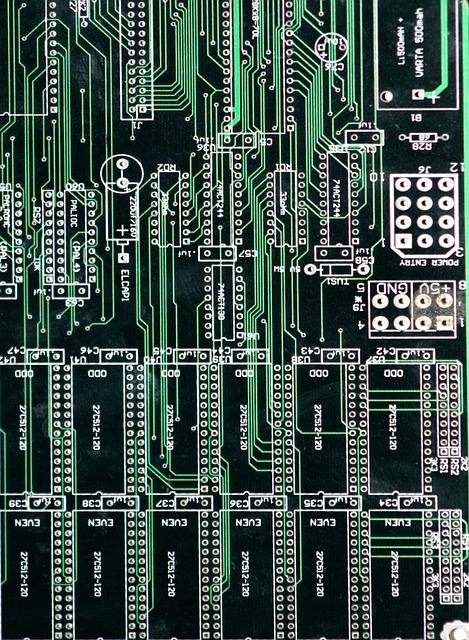# AI Technology’s Role in Shaping Future Innovations and Enhancing Everyday Experiences
Artificial Intelligence (AI) has rapidly evolved from a conceptual framework to a cornerstone of modern technology. As we stand on the cusp of a new era, AI is not merely an ancillary tool; it is the driving force behind innovations that are transforming industries and enhancing daily life. This article delves into the multifaceted role of AI technology, exploring its impact on various sectors and its potential to revolutionize our everyday experiences.
## Transforming Industries Through Automation
The integration of AI into various industries has led to unprecedented levels of automation, redefining how businesses operate. Manufacturing, for instance, has witnessed a seismic shift with the advent of AI-powered robotics. These machines not only perform repetitive tasks with precision but also learn from their environments to optimize processes. By analyzing vast amounts of data in real-time, AI systems can predict equipment failures, streamline supply chains, and improve product quality. Consequently, companies are experiencing increased productivity and reduced operational costs.
Moreover, the healthcare sector is undergoing a transformation that could redefine patient care. AI algorithms are being utilized to analyze medical images, predict patient outcomes, and even assist in surgical procedures. For example, AI systems can detect anomalies in radiology scans with accuracy that rivals, and sometimes exceeds, that of human radiologists. This capability not only enhances diagnostic accuracy but also enables healthcare professionals to focus on patient interaction and care, ultimately improving the overall patient experience.
In addition to these advancements, the financial services industry is leveraging AI for fraud detection and risk assessment. Machine learning algorithms can analyze transaction patterns to identify anomalies indicative of fraudulent activity. As a result, financial institutions can respond swiftly to potential threats, safeguarding both their assets and their customers’ information. The implications of such innovations are profound, as they foster a safer and more reliable financial ecosystem.
## Enhancing Everyday Experiences with Smart Technology
Beyond industry-specific applications, AI is increasingly becoming an integral part of our daily lives. Smart home devices, powered by AI, are revolutionizing how we interact with our living spaces. From voice-activated assistants like Amazon’s Alexa to smart thermostats that learn user preferences, these technologies are designed to create more efficient and personalized environments. As a result, individuals can manage their homes with unprecedented ease, optimizing energy usage and enhancing comfort.
Transportation is another area where AI is making a significant impact. The rise of autonomous vehicles, driven by sophisticated AI algorithms, promises to reshape urban mobility. These vehicles utilize a combination of sensors, cameras, and machine learning to navigate complex environments, making real-time decisions to ensure safety and efficiency. By reducing human error, AI-driven transportation systems could lead to fewer accidents, decreased traffic congestion, and lower emissions, ultimately contributing to more sustainable urban living.
Furthermore, AI is enhancing the way we consume information and entertainment. Streaming platforms like Netflix and Spotify utilize AI algorithms to analyze user preferences and recommend content tailored to individual tastes. This personalized approach not only enhances user engagement but also fosters a deeper connection with the content being consumed. As AI continues to evolve, the potential for more immersive and interactive experiences in entertainment is boundless.
## The Ethical Considerations and Future Prospects of AI
While the benefits of AI technology are undeniable, it is essential to address the ethical considerations that accompany its rapid advancement. Concerns regarding data privacy, algorithmic bias, and job displacement are at the forefront of discussions surrounding AI integration. To mitigate these risks, stakeholders must prioritize transparency and accountability in AI development. Establishing ethical guidelines and regulatory frameworks will be crucial in ensuring that AI technologies are deployed responsibly and equitably.
Looking ahead, the future of AI technology holds immense promise. The convergence of AI with other emerging technologies, such as the Internet of Things (IoT) and blockchain, is set to create even more sophisticated solutions. For instance, smart cities that leverage AI, IoT, and blockchain can optimize resource allocation, enhance public safety, and improve overall quality of life for residents. Such innovations could lead to a more interconnected and efficient world.
As we continue to embrace AI technology, fostering a culture of collaboration between technologists, ethicists, and policymakers will be vital. By doing so, we can ensure that the innovations driven by AI not only enhance our lives but also align with our societal values. The path forward requires a commitment to leveraging AI for the greater good, ultimately shaping a future where technology serves humanity in meaningful ways.
In conclusion, AI technology is profoundly influencing both industry and everyday life. Its capacity for automation is transforming sectors like manufacturing and healthcare, while its integration into smart technology is enhancing our daily experiences. However, as we navigate this transformative landscape, it is crucial to remain vigilant about the ethical implications of AI. By prioritizing responsible development and fostering collaboration, we can harness the full potential of AI, paving the way for future innovations that enrich our lives and create a better world.











